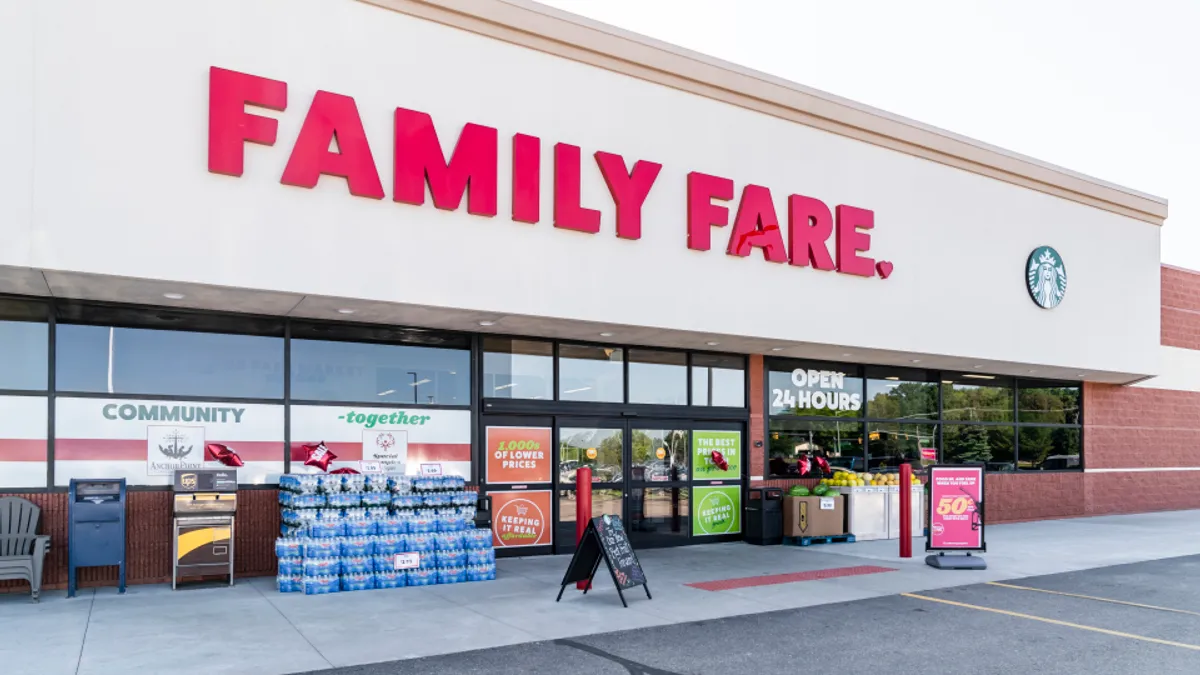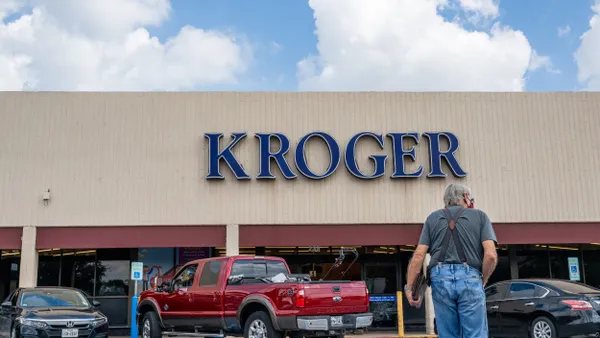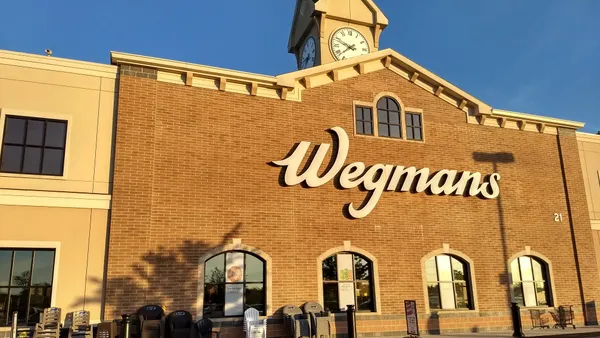Dive Brief:
- SpartanNash posted lower comparable-store and net sales during the fourth quarter of 2023, as the company’s retail and wholesale divisions both saw lower volumes.
- Net sales in Q4 came in at $2.25 billion, a 2.8% year-over-year decline compared with the same period in 2022. Retail sales fell 4.5% during the quarter, to $647 million, while comparable-store sales were off by 2.8%.
- SpartanNash’s results during the quarter were held back by factors including lower inflation and reduced demand from Amazon.
Dive Insight:
SpartanNash’s dependence on Amazon as a key customer for its wholesale business has emerged as a central challenge for the grocery company in recent quarters as Amazon has taken steps to reset its own supermarket operations.
But speaking during an earnings call Thursday morning, SpartanNash executives said the company has been able to hold its own despite the fact that its business with Amazon has declined and the top-line benefits it had reaped from elevated inflation went away.
“They’re finding their way to the right place in their business,” SpartanNash President and CEO Tony Sarsam said about Amazon during the call. “We’re supporting them as they kind of design what’s going to be best for them and their consumers. They’ve continued to rightsize that business and we saw more of that in the fourth quarter as they continue to pull back and figure out what they're going to do next.”
Despite the headwinds it has faced, SpartanNash was able to improve profitability in 2023 even as “others in the industry were simply maintaining or declining,” Sarsam said.
SpartanNash’s sales for all of 2023 rose 0.9%, to $9.73 billion, a figure that was less robust than the company had projected because of weakness in its business with Amazon, Sarsam said. SpartanNash’s wholesale business increased 1.1% last year, to $6.92 billion, but sales for the division were down 2% in Q4, to $1.6 billion.
The company’s retail division saw sales rise 0.4% during 2023, to $2.81 billion, and comparable sales were up 2%. SpartanNash runs 144 brick-and-mortar supermarkets under banners including Family Fare, Martin’s Super Markets and D&W Fresh Market, as well as pharmacies and fuel centers.
SpartanNash CFO Jason Monaco said the company has been focused on managing costs and improving margins as it has sought to keep its business healthy despite the challenges facing the company.
“What that’s allowing us to do is kind of pilot through the incremental headwinds in the marketplace,” said Monaco. “Nobody predicted that we’d have two years of double-digit inflation. But what we’ve done is we've operated and we’ve executed regardless of what the market conditions look like outside. And what we’re doing is building a machine that drives performance in up and down markets.”
Sarsam noted that SpartanNash has stepped up its use of automation as a way to save money. Those efforts include adding an automated workforce planning tool as well as expanding its use of inventory robots from Simbe Robotics, which SpartanNash began testing at 15 grocery stores in mid-2023 and said earlier this week it would bring to 60 additional supermarkets.













